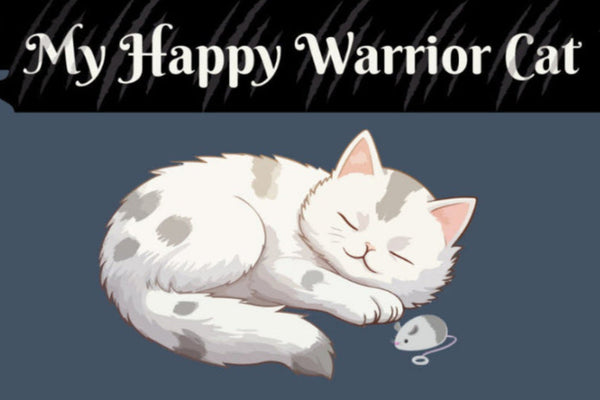
Pet-Proof Your Holidays: Toxic Plants You Should Avoid
Holiday Plants Toxic to Pets: What You Need to Know
The holiday season brings festive cheer, beautifully decorated homes, and an abundance of seasonal plants. While these plants add to the charm of the holidays, many of them pose a risk to your pets if ingested. Cats and dogs are naturally curious, so it’s essential to know which plants to avoid and how to keep your furry friends safe.
1. Poinsettias

- Why They’re Popular: Known for their vibrant red and green leaves, poinsettias are a holiday favorite.
- Toxicity Level: Mild to moderate.
- Effects on Pets: Ingesting poinsettias can cause irritation to the mouth and stomach, leading to drooling, vomiting, and sometimes diarrhea.
- Prevention: Keep poinsettias out of reach or opt for artificial alternatives that mimic their festive look.
2. Mistletoe

- Why It’s Used: Mistletoe is a classic decoration for holiday traditions.
- Toxicity Level: Moderate to severe, depending on the amount ingested.
- Effects on Pets: Symptoms include vomiting, diarrhea, low blood pressure, difficulty breathing, and in severe cases, seizures or death. European mistletoe tends to be more toxic than American varieties.
- Prevention: Hang mistletoe high and secure, ensuring no leaves or berries fall to the ground.
3. Holly (English and American)

- Why It’s Festive: With its shiny green leaves and bright red berries, holly adds a festive touch to decor.
- Toxicity Level: Moderate.
- Effects on Pets: Consuming holly can lead to vomiting, diarrhea, and drooling due to its spiny leaves and saponins, which irritate the digestive system.
- Prevention: Choose artificial holly or ensure the plant is placed in an area inaccessible to pets.
4. Lilies (Amaryllis and Other Varieties)

- Why They’re Popular: Lilies are often included in holiday floral arrangements.
- Toxicity Level: Extremely toxic to cats; mildly toxic to dogs.
- Effects on Pets: In cats, even a small ingestion can cause kidney failure. Dogs may experience vomiting and diarrhea.
- Prevention: Avoid lilies entirely if you have cats. Opt for pet-safe flowers instead, such as roses or sunflowers.
5. Christmas Cactus

- Why It’s a Favorite: Christmas cacti are popular for their long-lasting blooms during the holidays.
- Toxicity Level: Low.
- Effects on Pets: While not toxic, eating the plant can cause minor gastrointestinal upset, such as vomiting or diarrhea.
- Prevention: Though relatively safe, keep Christmas cacti out of reach to discourage nibbling.
6. Christmas Trees (Pine, Fir, and Spruce)

- Why They’re Central: Real Christmas trees fill homes with a festive aroma and traditional beauty.
- Toxicity Level: Low to moderate.
- Effects on Pets: Needles from pine, fir, or spruce trees can cause irritation to the mouth and stomach, leading to vomiting or drooling. Tree water containing preservatives or fertilizers can also be harmful.
- Prevention: Sweep fallen needles regularly and cover the tree base to prevent pets from drinking the water.
7. Cyclamen

- Why It’s Festive: Cyclamen’s bright flowers make it a holiday favorite.
- Toxicity Level: Moderate to severe.
- Effects on Pets: Ingesting cyclamen can cause excessive drooling, vomiting, diarrhea, and heart arrhythmias in severe cases.
- Prevention: Place cyclamen plants in high, out-of-reach areas or skip them altogether.
8. Ivy

- Why It’s Common: Often used in garlands or wreaths, ivy adds a touch of greenery to holiday decor.
- Toxicity Level: Mild to moderate.
- Effects on Pets: Can cause vomiting, abdominal pain, and diarrhea. In severe cases, ivy ingestion can lead to respiratory issues.
- Prevention: Avoid using ivy in places where pets can chew on it.
Pet-Safe Holiday Plant Alternatives
If you want festive greenery without the risks, consider these pet-safe options:
- Boston Ferns
- Spider Plants
- Areca Palms
- Artificial Plants: High-quality artificial alternatives can mimic the look of your favorite holiday plants without posing a threat to your pets.
What to Do if Your Pet Ingests a Toxic Plant
- Act Quickly: Remove any remaining plant material from your pet’s mouth.
- Call Your Veterinarian: Provide details about the plant and the amount ingested.
- Contact a Poison Control Center: The ASPCA Animal Poison Control Center (888-426-4435) is available 24/7 for emergencies.
Final Thoughts
While holiday plants add charm and warmth to your decor, many can be harmful to pets. By opting for pet-safe plants or artificial alternatives, you can keep your home festive and your furry companions safe. A little extra care goes a long way in ensuring everyone has a happy and healthy holiday season.
